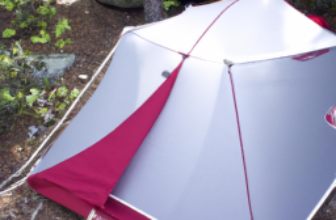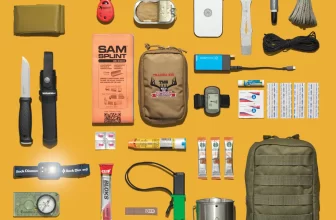Are you planning on going camping soon but have no idea what type of tent to buy? Well, you’re in luck because we’re here to help you figure that out! Choosing the right tent is crucial for a successful camping trip, so let’s dive into the different types of tents available. In this article, we’ll discuss the various factors you should consider when buying a tent and guide you through the process of finding the perfect one for your camping needs. By the end, you’ll be well-equipped with the knowledge to make an informed decision. So, let’s get started!
First things first, when selecting a tent, you should think about the number of people you’ll be camping with and the amount of space you’ll need. If it’s just you or you’re going solo, a smaller tent should suffice. However, if you’re camping with a large group or have a family, you’ll need a larger tent with multiple rooms or compartments. The size of the tent will directly impact your comfort during the trip, so it’s essential to choose wisely.
Next, consider the climate and weather conditions you’ll be camping in. If you’re heading to an area where it often rains or experiences heavy winds, it’s crucial to invest in a tent that offers good protection. Look for features like a high waterproof rating, sturdy poles, and strong stitching. On the other hand, if you’re camping in a hot and dry climate, a tent with excellent ventilation and UV protection will ensure a comfortable stay.
Lastly, think about how frequently you’ll be using the tent and the durability you require. If you’re a frequent camper or plan to use the tent for extended periods, opt for a higher-quality and more durable tent. While these may be pricier, they’ll be worth the investment in the long run. On the other hand, if you’re an occasional camper or just starting out, a budget-friendly tent with decent quality will likely suffice.
In the upcoming article, we’ll dive deeper into each type of tent and explore their specific features and benefits. So, stay tuned to find out which tent will best suit your camping needs! Choosing the right tent for your camping needs can make or break your outdoor experience. There are several factors to consider when selecting a tent, including size, seasonality, ease of setup, durability, and cost. Additionally, the type of tent, features and accessories, materials and construction, size requirements, camping locations, and weight and portability should also be taken into account. In this article, we will explore each of these considerations to help you make an informed decision on the perfect tent for your camping adventure.
Size and Capacity
The size and capacity of your tent will depend on the number of occupants and the amount of space you prefer. If you are camping solo or with one other person, a smaller tent with a capacity of 2-3 people should suffice. However, if you are camping with a family or a group of friends, you may need a larger tent that can accommodate 4-8 people. Consider the height and width of the tent to ensure everyone can comfortably move inside.
Seasonality and Climate
The seasonality and climate of your camping destination play a crucial role in choosing the right tent. If you plan to camp during the summer months or in mild climates, a lightweight and well-ventilated tent may be suitable. However, if you are camping in colder or wetter conditions, you will need a tent that is designed for those specific weather conditions, such as a four-season or three-season tent.
Ease of Setup
Setting up a tent can be a daunting task, especially if you are a novice camper. Look for tents that offer easy setup features, such as color-coded poles and intuitive designs. Some tents come with telescopic poles or pre-attached clips, which can make the setup process much simpler. Consider how long it takes to assemble and disassemble the tent, especially if you plan to move frequently during your camping trip.
Durability and Quality
A high-quality and durable tent is essential for withstanding the elements and ensuring longevity. Look for tents made from sturdy materials, such as ripstop nylon or polyester, which are resistant to tearing. Check the quality of the zippers, seams, and stakes, as these are often the areas that can fail first. It is worth investing in a well-constructed tent that can withstand rough weather conditions and provide you with many enjoyable camping trips.
Types of Tents
Now that you have considered the basic factors, let’s explore the different types of tents available in the market. Each type has its own advantages and is suitable for different camping scenarios.
Dome Tents
Dome tents are the most popular and versatile type of tents. They are characterized by their dome-shaped design and sturdy frame. Dome tents are easy to set up, provide ample headroom, and offer good wind resistance. They come in various sizes and are suitable for both camping in campgrounds and wilderness settings.
Cabin Tents
Cabin tents are spacious and provide a more home-like feel. They have near-vertical walls, allowing for maximum interior space and headroom. Cabin tents are ideal for family camping trips as they offer separate rooms or dividers for privacy. However, they can be heavy and take up more space when packed.
Backpacking Tents
Backpacking tents are lightweight and designed for hikers and backpackers who prioritize portability and compactness. They are usually smaller in size and have a minimalist design. Backpacking tents are easy to carry, quick to set up, and offer excellent weather protection. However, they may sacrifice comfort and interior space compared to larger tents.
Pop-Up Tents
Pop-up tents, also known as instant tents, are convenient for campers who value speed and simplicity. These tents have pre-attached poles and can be set up within minutes. Pop-up tents are great for casual camping trips, festivals, or backyard camping. However, they may not offer the same level of durability and weather resistance as other types of tents.
Features and Accessories
Beyond the basic structure of the tent, there are additional features and accessories that can enhance your camping experience.
Vestibules and Porches
Vestibules and porches are extensions of the tent that provide additional covered space outside the main sleeping area. They can be used for storing gear, cooking, or as a shaded area to relax. Vestibules are typically attached to the front or sides of the tent, while porches are usually found in cabin-style tents.
Rainfly
A rainfly is a waterproof cover that goes over the tent to protect it from rain and moisture. It acts as an additional layer of defense against the elements. Some tents come with a built-in rainfly, while others require separate attachment. Look for a rainfly that provides ample coverage and is made from a durable and waterproof material.
Ventilation
Proper ventilation is crucial to prevent condensation buildup and keep the interior of the tent comfortable. Look for tents with mesh panels or windows that allow airflow while keeping bugs out. Ventilation is particularly important in warm and humid climates.
Flooring
The flooring of a tent is often overlooked but plays a significant role in comfort and protection. A durable and waterproof floor will keep you dry even if the ground is wet. Some tents come with a bathtub-style floor that provides extra protection against water seepage. Additionally, consider adding a footprint or groundsheet to further protect the tent floor from wear and tear.
Storage Pockets
Having storage pockets inside the tent can help keep your belongings organized and easily accessible. Look for tents with multiple pockets of different sizes to accommodate items such as keys, flashlights, and phones. This feature can save you from fumbling around in the dark for essentials.
Budget and Cost Considerations
Determining your budget before shopping for a tent is essential to avoid overspending. Consider what features and qualities are most important to you and allocate your budget accordingly.
Determining Your Budget
Assess how often you plan to camp and how long you expect the tent to last. If you are a frequent camper and plan to use the tent for many years, it may be worth investing in a higher-priced, durable tent. However, if you are an occasional camper or have budget constraints, there are affordable options available without compromising too much on quality.
Value for Money
When assessing the value for money, consider the overall quality, durability, and features of the tent. Determine if the price justifies the included features and accessories. It is often better to spend a little more on a tent that will last longer and provide better comfort and weather protection.
Additional Costs
Keep in mind that the cost of the tent is not the only expense. You may need to purchase additional accessories such as a footprint, stakes, or guy lines. Also, factor in the cost of transportation, as larger or heavier tents may require additional effort and expenses to transport.
Tent Materials and Construction
Understanding the materials and construction of the tent can help you assess its durability and weather resistance.
Fabric Materials
The fabric used in the construction of the tent determines its durability and weatherproofing. Look for tents made from ripstop nylon or polyester, as these materials are lightweight, durable, and resistant to tearing. Additionally, ensure that the tent fabric has a waterproof coating to prevent water penetration.
Poles and Frame
The poles and frame of the tent provide its structure and stability. Aluminum or fiberglass poles are the most common and offer a good balance between durability and weight. Aluminum poles are stronger and more durable but are also more expensive. Fiberglass poles are lighter but can break more easily. Consider the number of poles and their design, as this can affect the ease of setup and overall stability of the tent.
Seams and Waterproofing
Check the quality of the tent’s seams as they can be potential weak points for water leakage. Taped or sealed seams offer better water resistance. Additionally, ensure that the tent has a waterproof rainfly and bathtub-style floor to provide adequate protection against rain and moisture.
Choosing the Right Size
Selecting the right size tent depends on the number of occupants and any additional space requirements.
Number of Occupants
Consider the number of people who will be sleeping in the tent. While tents are typically labeled with a specific capacity, it is often better to choose a size larger than the number of occupants. This allows for extra space to store gear or move comfortably inside the tent.
Additional Space Needs
If you have bulky gear or prefer more room for activities inside the tent, consider choosing a larger size. Additionally, if you are camping with pets or children, a bigger tent provides more space for them to sleep and play.
Height and Comfort
Tent height is an essential factor to consider, especially if you are tall or prefer more headroom. Look for tents with a decent peak height to avoid feeling cramped. Taking the time to ensure that you have enough space to sit or stand comfortably inside the tent can greatly enhance your overall camping experience.
Camping Locations and Terrain
Where you plan to camp and the type of terrain will influence the type of tent you should buy.
Backcountry Camping
If you enjoy camping in remote wilderness areas, you will need a tent that is lightweight, durable, and able to withstand harsh weather conditions. Backpacking tents are usually the best choice for backcountry camping, as they are designed for portability and weather resistance.
Campground Camping
Campground camping offers more amenities and a less rugged environment. A dome tent or cabin tent is suitable for this type of camping, as they provide more space and comfort. However, be mindful of any specific campground rules or restrictions on tent size or type.
Environmental Factors to Consider
Consider the specific environmental factors of your camping location, such as wind, rain, or extreme temperatures. If you expect strong winds, look for tents with sturdy pole construction and good wind resistance. For rainy conditions, ensure that the tent has proper waterproofing features and a rainfly that covers the entire tent.
Weight and Portability
The weight and portability of the tent are important considerations, especially if you plan to hike or backpack to your camping destination.
Weight Restrictions and Limitations
Check the weight of the tent before purchasing to ensure that it is within your capabilities to carry. Keep in mind that larger tents are typically heavier. If weight is a concern, consider opting for a lighter backpacking tent or a pop-up tent.
Packability and Transportation
Consider how easily the tent can be packed and transported. Backpacking tents are usually designed to be compact and lightweight, making them easier to carry. Some tents come with carrying bags or stuff sacks that make transportation more convenient. Consider the size of the packed tent to ensure it fits inside your vehicle or backpack.
Seasonality and Climate Considerations
The seasonality and climate of your camping destination will play a significant role in the type of tent you should buy.
Summer Camping
For camping during the summer months, a lightweight and well-ventilated tent is essential to keep cool and comfortable. Look for tents with mesh panels, large windows, and ample airflow. Consider tents with rainflys that can be easily removed in warm and dry conditions.
Winter and Extreme Weather Camping
If you plan on winter or extreme weather camping, you will need a tent that can handle snow, strong winds, and low temperatures. Four-season tents are designed for harsh weather conditions and are built with sturdy frames and durable materials. They offer superior insulation and wind resistance.
Conclusion
Selecting the right tent for your camping needs involves careful consideration of several factors. Evaluate the size and capacity, seasonality and climate, ease of setup, durability and quality, budget and cost, tent materials and construction, size requirements, camping locations and terrain, weight and portability, and seasonality and climate considerations. By taking into account each of these factors, you can ensure a comfortable and enjoyable camping experience. Whether you choose a dome tent, cabin tent, backpacking tent, or pop-up tent, the perfect tent for your camping needs is out there. Happy camping!







